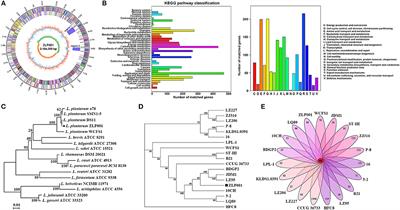DATA REPORT
Published on 27 Nov 2018
Complete Genome Sequencing of Lactobacillus plantarum ZLP001, a Potential Probiotic That Enhances Intestinal Epithelial Barrier Function and Defense Against Pathogens in Pigs

doi 10.3389/fphys.2018.01689
- 7,338 views
- 46 citations











